👁 Top Insights #125 - Polarization, Liberating Shadow, and Integrating Politics with Spirituality
Polarization & the righteous mind, political frameworks, new ways of doing shadow work, and watching duality unfold with unbearable compassion.
“Top Insights” is a monthly newsletter that shares mind-expanding podcasts, transformational frameworks, and insightful links that help you go beyond conventional development.
Welcome to the October 2024 edition of Top Insights 🍁
I hope autumn brings you abundance, creativity, and deep reflection.
Polarization and The Righteous Mind 🔴 🔵
As we get closer to the election you can smell polarization in the air.
Neighbors putting out signs to reflect their allegiance.
Ongoing political arguments playing out on social media.
Moral disgust spewed at the opposing party.
In this chaos, I continue to be struck by people’s convictions that their political choice is obviously correct.
This need for certainty and moral superiority is well documented in Jonathan Haidt’s “The Righteous Mind” a book I wish more people would read.
In it, Haidt compares morality to an acquired taste consisting of six taste buds: 1)care/harm 2) fairness/cheating 3) loyalty/betrayal 4) authority/subversion, 5) sanctity/degradation & 6) Liberty/Oppression.
Each person develops more or less or each taste bud resulting in a unique flavor of morality.
Nonetheless, people’s tastes overlap.
Those who lean left on the political spectrum are more concerned with the flavors of care & fairness while those who lean right are more concerned with the flavors of loyalty, authority, and sanctity.
I think the left-right political spectrum needs a revamp but let’s roll with it for now.
According to Haidt, conservatives have a wider appeal because they tend to understand all six flavors while liberals can become so preoccupied with care, fairness & liberty that they fail to realize that society needs the other flavors as well.
This doesn’t mean conservative views are more correct although in some respects they have a broader understanding of morality.
Below are moral matrices for three popular political positions.
Of course, these are not the only political positions that exist.
No model can reflect the infinite number of moral tastes but Haidt’s framework can help us recognize the complexity of politics.
In that realization, we lose conviction but we gain humility.
And it’s from that place that we can have more fruitful conversations.
Liberating Shadow 🔑👤
Readers of this newsletter know that Jung’s concept of the shadow plays a pivotal role in my understanding of human transformation & development.
And while the concept of the shadow isn’t new to me I’m continuously exploring different ways of working with it.
This past month I participated in a two-day Shadow Work course with Vajrayana practitioner and teacher Charlie Awbery.
On the first day of the workshop, we started by exploring a set of questions.
Who am I in the world?
I wrote down a list of roles I play (leader, communicator, father, husband, coach, thinker, creator, podcaster) as well as different attitudes, desires & ways of being I embody (truth seeker, embrace & move into conflict, direct, power aware, seek discomfort, challenge others, seeking excellence, need to know, appreciate aesthetics, desire intellectual stimulating and intimate conversations.)
How do others see me?
I tried to lean both into positive & negative perceptions people may have of me and came up with the following list: leader, direct, spiritual, thinks too much, goes too deep, too intense, too serious, cares too much, confident, grounded, resilient, relentless, challenging, complex, self-centered, attuned, righteous, arrogant, smart, and ignorant.
If some of those seem to contradict refer to Walt Whitman’s quote:
Do I contradict myself? Very well then I contradict myself, (I am large, I contain multitudes.)”
What are some of my patterns of interaction?
The patterns of interaction that I listed were: leading, taking control, influencing, speaking first and speaking a lot, assertiveness, prioritizing self, seeking conflict, wanting to get to the truth, feeling anger or ill will towards those who reject me, being hyper critical of self & others, challenging & pushing others to do better, not letting someone talk down to me.
For this question, I mostly thought about potentially problematic patterns since those are the ones we usually avoid looking at.
What is a short summary/quote that represents your dominant way of being?
I wrote down…The Relentless Challenger 😈
What is not my way of being?
This question brought us into shadow territory as we explored disavowed qualities & ways of being.
My list included: I’m not a polite person, I’m not a submissive person, I’m not a follower, I’m not a conformist, I’m not conventional, I’m not stupid, I’m not unhealthy, I’m not lazy, I’m not weak, I’m not a people pleaser, I’m not accommodating, I’m not a quiet person, I’m not lighter-hearted, I’m not fun, I’m not a go with the flow person, & I’m not someone who likes being wrong.
After this, we split into pairs where each person spoke about themselves for eight minutes followed by a minute reflection by the listener sharing what they appreciated about the speaker.
We also got to share the qualities we feel we are not and got help from our partner identifying potential shadows we might have missed.
Some more qualities/attitudes that emerged for me were: I’m not calm, I’m not irresponsible, I’m not a liar, I’m not needy, I’m not someone who surrenders to consensus, I’m not deliberately mean, I’m not beholden to people’s judgments of me, I’m not nice, I’m not foolish, I’m not dull, I’m not boring, I’m not slow, and I’m not patient.
Then Charlie asked us more reflective questions to help us decide which shadow way of being we would work with.
I decided to work with the playful/spontaneous/light-hearted way of being which I equated with the fool archetype.
After lunch break, we moved into another phase of the workshop where Charlie's co-facilitator Sendolo modeled a shadow way of being.
I was moved by Sendolo's courage and vulnerability as well as his capacity to step so deeply into a disavowed quality.
After this, we got into groups of four where we each got a chance to step into a shadow way of being.
There were three segments to this process: shadow body, shadow mind, and shadow voice.
In shadow body, we were only able to use our bodies as ways to express the shadow.
In Shadow Mind, we were invited to include our thoughts in the expression of the shadow.
Finally, in shadow voice, we were invited to include any non-verbal sounds that were emanating through our shadow.
When it was my turn I attempted to step fully into the Fool.
My mobility issue made it difficult for me to move in all the ways I desired but during the shadow mind part, I started cracking jokes both on myself and others.
During the shadow voice segment, I felt compelled to make evil laughing sounds (muaaahahaha) and chimp shrieks which served as an energetic release.
After this full-day exploration, I was drained.
I slept like a baby and had a very vivid dream which seemed to send a message that I should go deeper and connect to my inner child.
Coming into the second day I decided I would work with a different shadow that was a layer deeper than the fool - The Vulnerable Child.
We started the day by practicing embodying our shadows while staying together in the large group.
We made a big circle and were one by one invited by Charlie to step inside and interact with others inside the circle.
Most of the interactions were non-verbal and with permission, some people incorporated touch.
Imagine people dancing, jumping, skipping, and making various faces and body postures that were expressions of their shadow qualities.
I avoided eye contact and tried to embody fear, awkwardness, & shyness as qualities of the Vulnerable Child.
Afterwards, we had a debrief and were told that after lunch we were to enter back into the room while already playing our shadow role.
Returning from lunch we were invited into a theme of a party.
There was music playing and the room was divided into different sections.
I once again avoided eye contact and did my best to feel into the qualities of the Vulnerable Child.
Much of my interaction was actually avoiding interactions and staying to myself which felt counterintuitive to my dominant way of being.
The Vulnerable Child quality attracted people who were playing roles of protectors and helpers.
One interaction in particular made me feel like a victim which almost popped me out of this shadow way of being.
I stayed with it and eventually felt the sadness that comes from feeling disconnected from others.
Another participant came and validated my sadness at which point the Vulnerable child wanted to start having fun.
I started to dance and interact more with people but I remained mostly in a passive/accommodating role.
Several times I asked for advice looking to others for leadership which are also counterintuitive ways of being for me.
After this segment, we once again grouped into pairs this time sharing for eight minutes about our shadow self and then reflecting on what we appreciated about our partner’s shares.
As I reflect on this weekend's workshop several threads emerge.
One is the distinction between making change happen and letting change happen.
Many people with a transformational bent (myself included) can become preoccupied with making change happen while disallowing change to happen on its own.
Playing a passive role during the party exercise showed me that good things can happen when I get out of the way.
I don’t always have to be the one initiating change or taking charge.
I’ve worked with the Vulnerable Child before so it wasn’t a completely unfamiliar role yet this weekend was the most I’ve consciously embodied it.
Bringing increased awareness to this way of being illuminated how the Vulnerable Child’s fear of rejection closed me off from people yet this fear was unconscious and usually obscured by a protector part.
I also learned that connecting to the Vulnerable Child is a way for me to become more accommodating and receptive to people and situations.
This reflection helped me integrate my experience but I hope it can also inspire new ways for you to work with your shadows.
Integrating Politics with Spirituality 🇺🇸☯️
Thus far in this edition, we explored polarization & shadows two distinct but deeply interlated concepts.
Polarization is a conflict between two or more parts, values, or people.
To be in a polarization we must believe that we are separate entities.
To take shadow work to its fullest extent is to see everyone as yourself and dissolve all polarization.
This is why the spiritual teacher Ram Dass kept both a picture of Obama and Trump on his altar.
It served as a reminder that they too are aspects of himself.
Initially, Ram Dass struggled to embody his guru Maharaji’s core teaching “love everyone & tell the truth” but towards the end of his life, these words penetrated deep into his bones.
Ram Dass used to say…
“You may protest if you can love the person you are protesting against as much as you love yourself.”
This to me encapsulates a radical vision of shadow work.
Some may scoff at Maharaji’s and Ram Dass’s words seeing them as overly idealistic and unrealistic.
But nearly all spiritual teachings flip conventional reality on its head.
"You have heard that it was said, ‘Love your neighbor and hate your enemy.’ But I tell you, love your enemies and pray for those who persecute you." - Jesus
"What the wise see as blameworthy, the foolish see as praiseworthy. What the foolish see as blameworthy, the wise see as praiseworthy." - Buddha
“If you want to become whole, let yourself be partial. If you want to become straight, let yourself be crooked. If you want to become full, let yourself be empty.” - Lao Tzu
All of these teachings help us go beyond the dualistic mind not so we can get away from the world but so that we contend with everyday issues from a place of spaciousness & clarity.
The truth is we don’t know how our decisions will unfold in the complexity of the world.
But perhaps we can agree that a spacious mind is capable of making better decisions.
We cannot have a functional society without notions of right & wrong but we can learn to hold our righteousness with a little more space.
And from that space, I can love the politically convinced because they too reflect unseen parts of myself.
The part that is prematurely convinced.
The part that avoids conviction.
The part that is rightly convicted.
And from there we can watch it all unfolding with unbearable compassion.
Freedom from the Inner Critic 🕊️
Speaking of unbearable compassion I’m working on a 6-week live course on finding freedom from the inner critic.
In it, I’ll teach several frameworks and practices to help us find more space around critical thoughts while discovering increased compassion/acceptance for self and others.
It will build on the ideas of Tara Brach, Brene Brown, Loch Kelly, Richard Schwartz, Rob Burbea & other psychospiritual luminaries.
Some themes we will explore include presence/openness, cultivating compassion, criticism as a protective strategy, parts work, shame/not-enoughness, & forgiveness.
If you feel any resonance with this please fill out this interest form.
Elevating Consciousness Podcast 🎙
I didn’t release any new episodes this month but I want to share an old episode that is relevant to this edition of Top Insights. In it, I speak with author & political philosopher Steve McIntosh who offers a powerful perspective and framework to help us navigate the complexity of politics. Pair it with this in-depth book summary of Steve’s book Developmental Politics.
Developmental Politics with Steve McIntosh - Steve McIntosh is a political philosopher, lawyer, entrepreneur, and leader in the Integral space. He is the author of 5 books including Evolutions Purpose, The Presence of the Infinite, and most recently Developmental Politics – a book that details how America can grow into a better version of itself. He is also the president and the co-founder of The Institute for Cultural Evolution, a think tank that focuses on the cultural roots of America’s challenges. In this episode, we speak about the culture war, resolving political conflict with values integration, evolution as a spiritual teaching, and the importance of transcendence.
Insightful Links 🔗
Buddhism vs NonDuality - I appreciated this conversation between meditation teacher Yahel Avigur and the host of the Adventures in Awareness podcast where they explored different perspectives on nonduality and the emptiness of awareness. Yahel Avigur is a deep practitioner and a student of the late great Rob Burbea. If you enjoy this episode you can follow it up with some of Yahel’s dharma talks.
Animism is Normative Consciousness - The Emerald Podcast explores mythology, animism, and consciousness and is currently one of my favorites. If you’re new to the show this episode is a good gateway. In it, the host Josh Schrei explores how Animism - the view that everything is alive & interconnected is wrongly seen as primitive by the modern mind.
At Work in the Ruins with Dougald Hine - Another profound short film by Katie Teague exploring the work of former BBC journalist, author, and deep thinker on the meta-crisis Dougald Hine. I very much appreciate Dougald’s perspective and am adding him to my list of people who I want to interview.
Quintessential Quote ✍️
"We are not at peace with others because we are not at peace with ourselves, and we are not at peace with ourselves because we are not at peace with God."
- Thomas Merton
Thanks for reading. If you enjoyed this read click the “Subscribe now” button below to subscribe. If you're already a subscriber click the “Share Insighter” button to share with a friend or the “Leave a comment” button to share some thoughts.






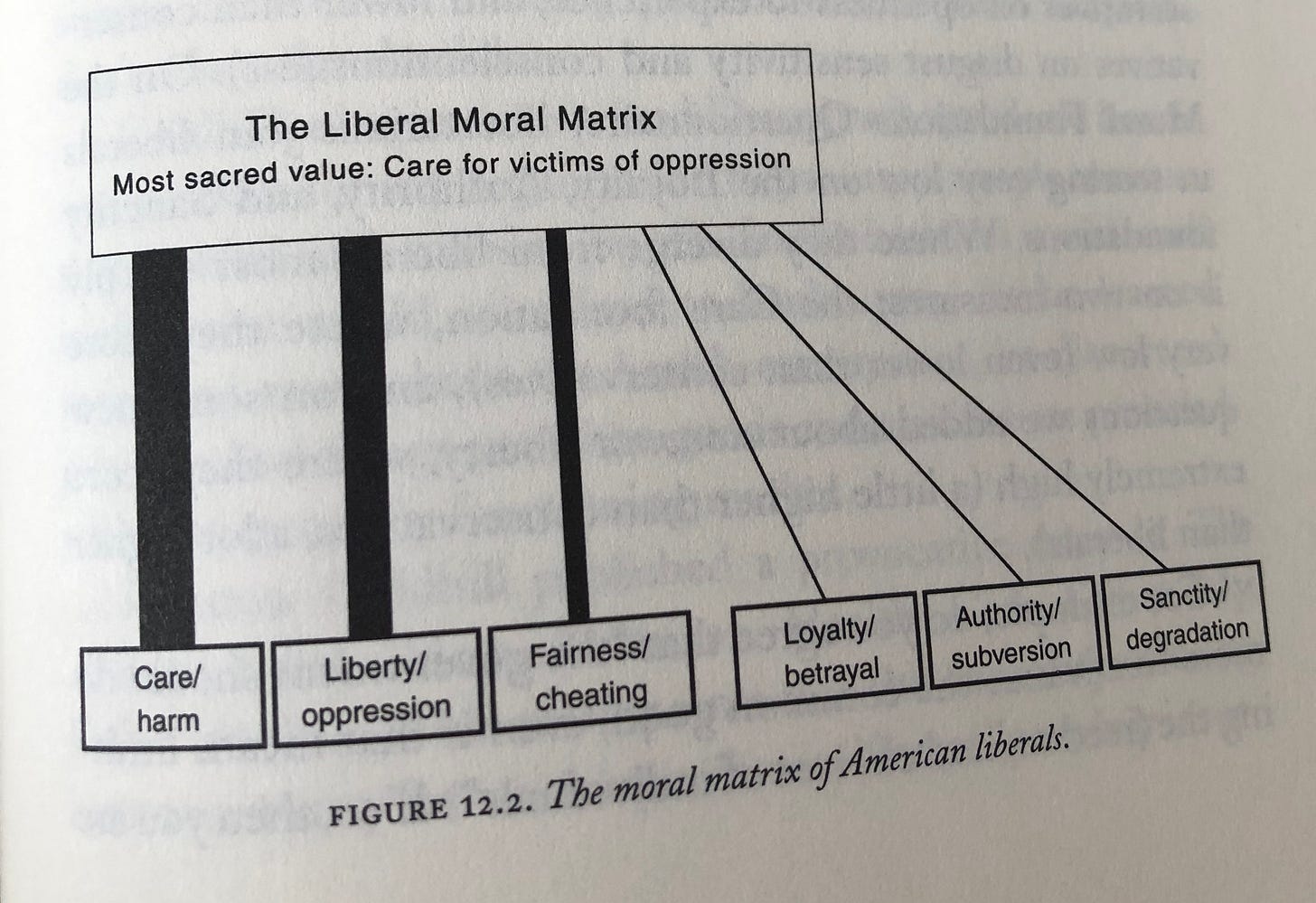
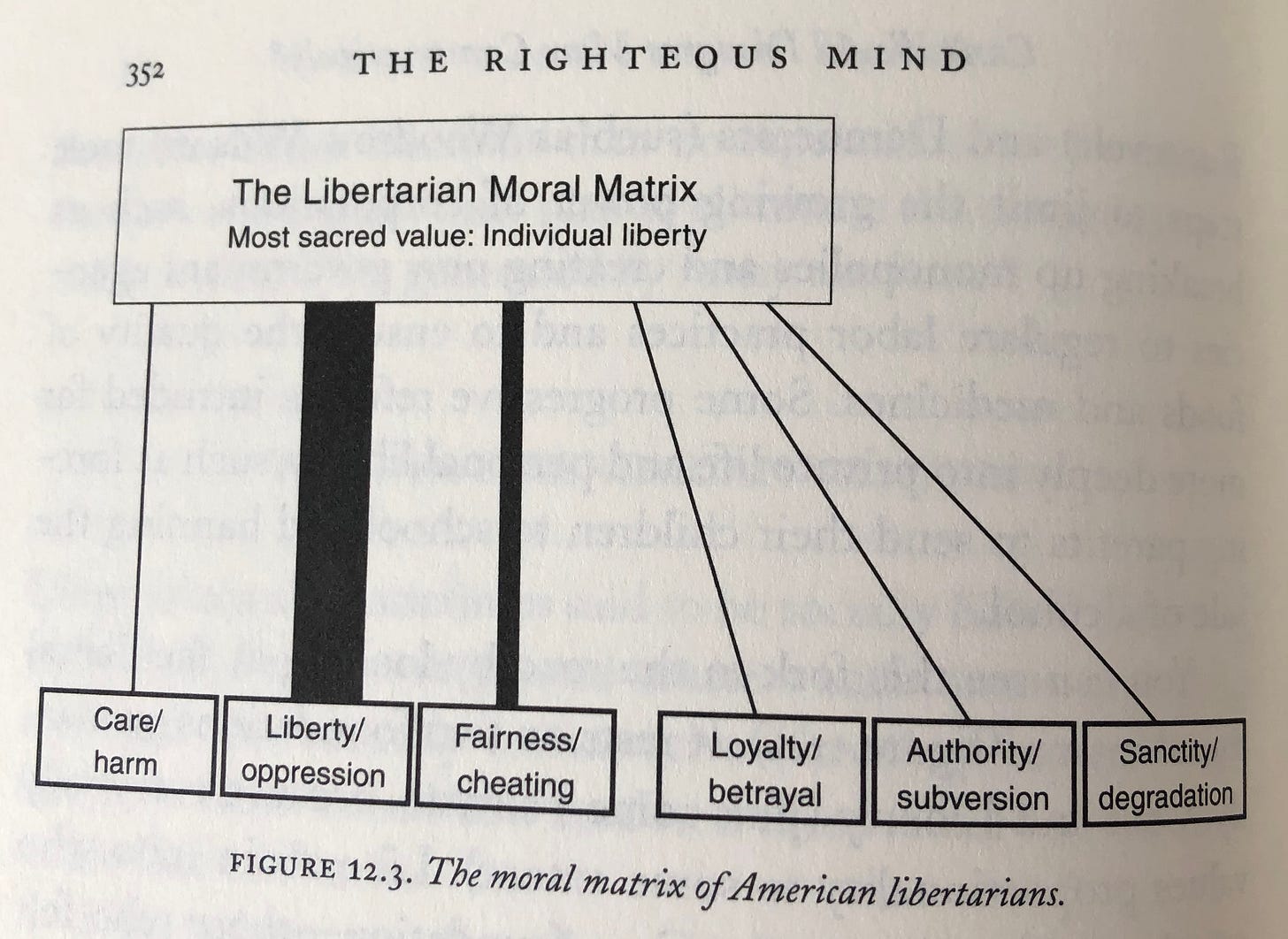


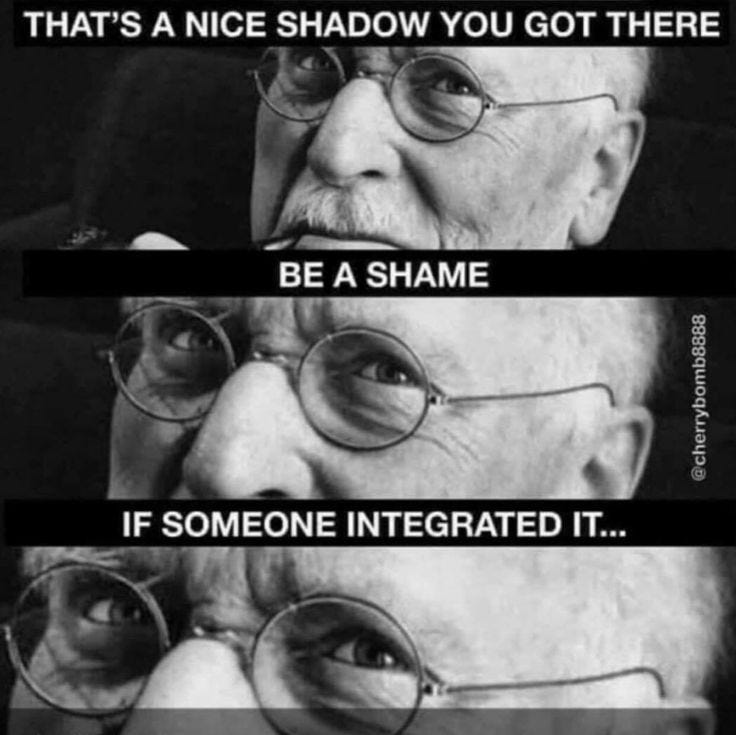
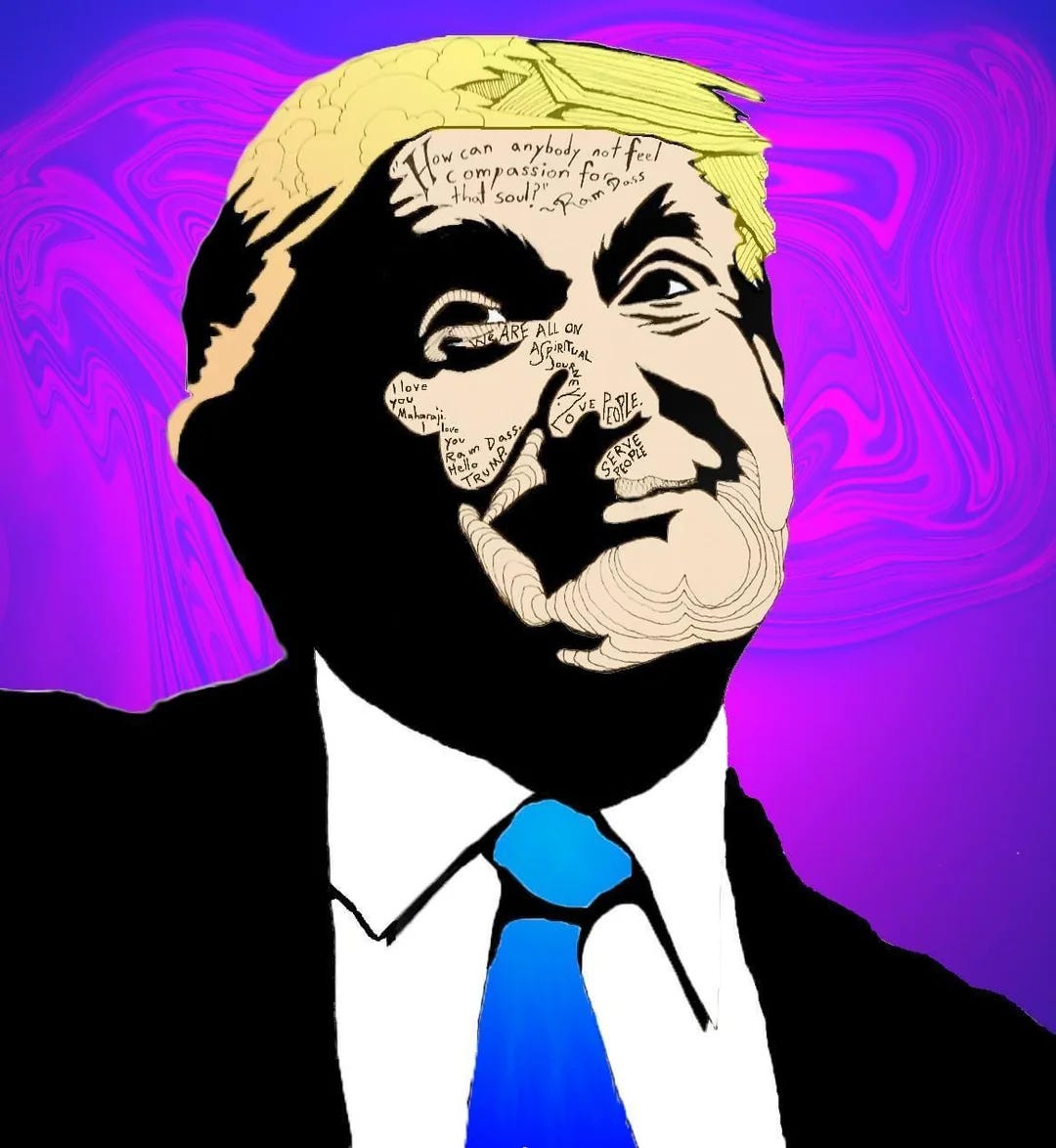
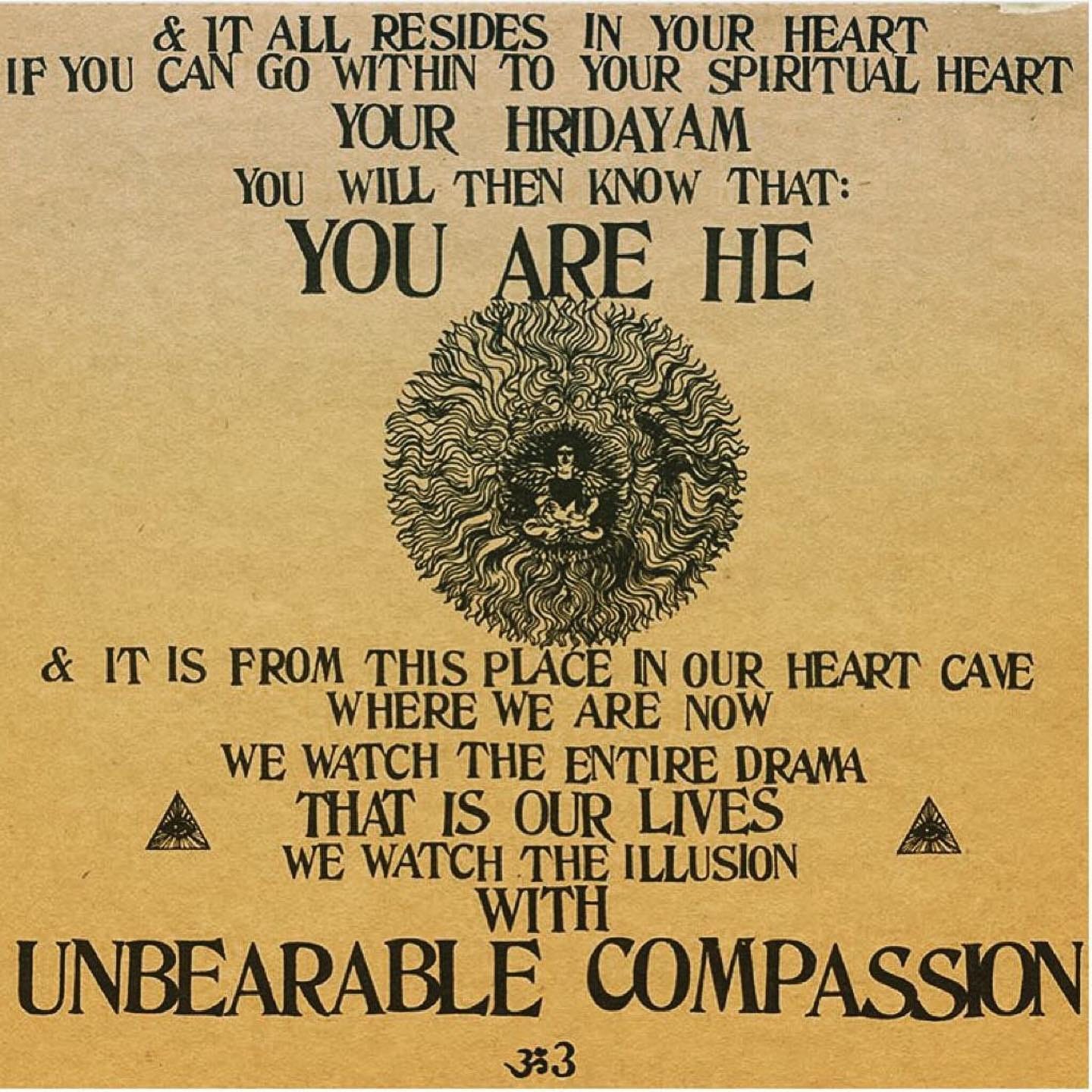
Thank you for sharing. I loved the way you wrote about the liberating shadow course here - very touching.